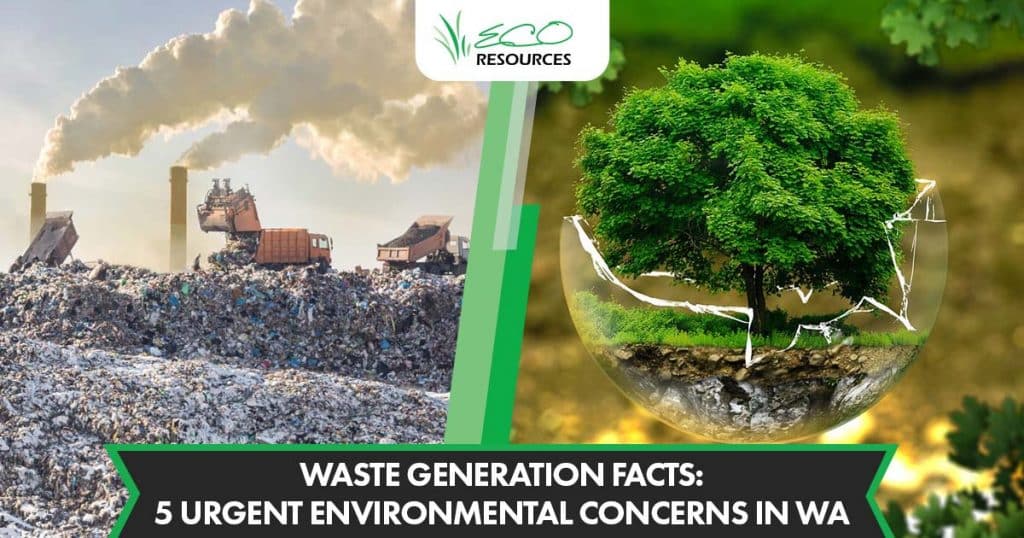

Western Australia (WA) is facing a pressing environmental challenge that demands urgent attention – its escalating waste generation. The management of waste is a critical aspect of environmental sustainability, impacting ecosystems, natural resources, and the overall well-being of communities.
In this article, we aim to shed light on six alarming facts about waste generation in Western Australia, emphasising the importance of addressing this issue for the sake of the environment and future generations.
Western Australia stands out with a unique and concerning statistic – an annual waste production of 2.4 tonnes per person, surpassing the national average and placing a significant burden on the state’s environment. This high waste production per capita emphasises the urgency of addressing the issue.
Comparing this figure with the national average underscores the magnitude of the problem, emphasising the need for individual responsibility in reducing waste. To achieve environmental sustainability, each citizen must be aware of their waste footprint.
In the 2020-2021 period, WA generated a staggering 6.4 million tonnes of waste, solidifying its position as the highest waste per capita contributor in Australia. This alarming statistic demands attention as it reflects a substantial environmental footprint.
Comparisons with other Australian states accentuate the urgency of addressing this issue in Western Australia. The consequences of such high waste generation pose risks to ecosystems, waterways, and overall environmental health.
Despite the growing awareness of the importance of recycling, WA lags with a recycling rate of just above 30%, falling below the national average of over 50%. Low recycling rates contribute significantly to the strain on landfills and the depletion of natural resources.
It is crucial to emphasise the environmental impact of insufficient recycling and to encourage a collective call to action for improved recycling practices within the community.
Construction and demolition projects contribute significantly to WA’s waste, amounting to 4.4 million tonnes annually. What makes this even more concerning is that nearly three-quarters of this waste finds its way into landfills.
This highlights the need for a reevaluation of construction practices, promoting sustainable methods and waste reduction strategies. Minimising construction-related waste is paramount in ensuring a more sustainable and eco-friendly future for Western Australia.
Amidst the challenges, there are glimmers of hope. Waste recovery in WA has increased from 42% to 60%, showcasing a positive trend in waste management practices. Analysing the causes behind this improvement provides valuable insights for future strategies.
However, the overall waste generation in WA continues to rise, with a 553,000-tonne increase in 2020-2021. This underscores the pressing need for comprehensive waste management reforms and the importance of individual and collective efforts to address this growing concern.
In conclusion, the six shocking facts about waste generation in Western Australia underscore the urgency of implementing effective waste management and recycling practices. Individual and collective efforts are paramount in reducing waste, promoting sustainability, and preserving the environment for future generations.
Readers are encouraged to actively participate in local waste management initiatives and adopt eco-friendly practices in their daily lives. Supporting organisations like Eco Resources, dedicated to recycling and waste management in Western Australia, can play a crucial role in driving positive change.
By working together, the community can contribute to a more sustainable and environmentally conscious future for Western Australia.
Related articles:

Kristy Sumich is the owner and director of Eco Resources, a prominent waste management and recycling service in Western Australia. With deep industry knowledge and hands-on operational experience, Kristy is dedicated to providing sustainable solutions in waste management.
All rights reserved © Eco Resources. Website by Selling Online Made Simple. Sitemap.